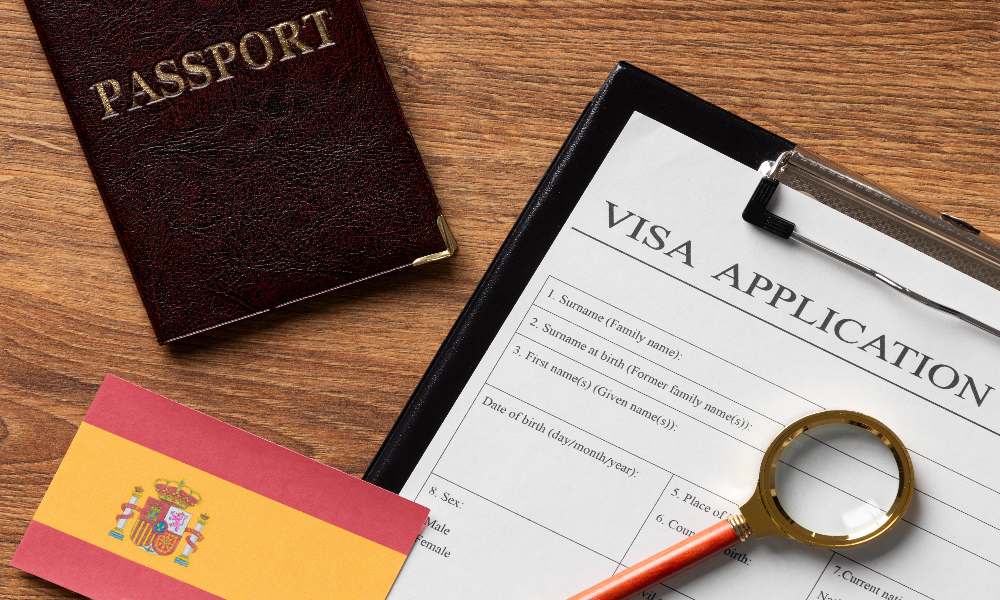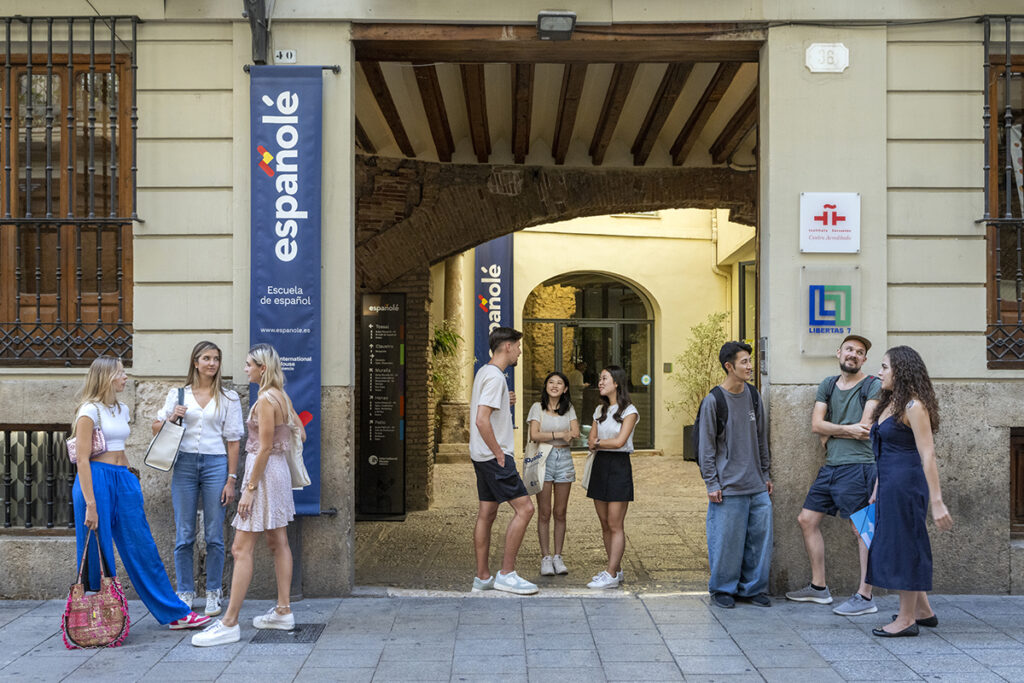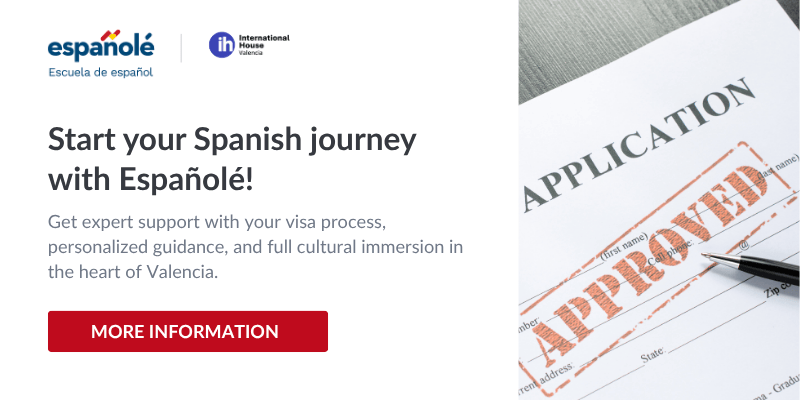Dreaming of studying in Spain? With its warm climate, rich culture and top-ranked universities, it’s easy to see why so many international students choose this destination. But before booking your flight to Barcelona, Madrid or Valencia, there’s one important step: securing your Spain student visa.
And heads up: new rules introduced in 2025 mean you’ll need to be even more organized than before. As of May 2025, you must apply for your student visa before entering Spain. Applications from within the country are no longer accepted, so plan early to avoid delays.
What is the Spain student visa?
A Spain student visa allows non-EU citizens to legally live and study in Spain for over 90 days.
If you’re from the USA, UK, Russia, Japan, China, or any non-EU/EEA country, it’s required if you’re pursuing:
- A university degree (Bachelor’s, Master’s, PhD)
- A Spanish language course
- A study-abroad or exchange program
- Vocational or professional training
The visa opens doors to both public and private education in Spain. It’s typically valid for the duration of your studies and can be renewed annually. It also allows you to work part-time (up to 30 hours per week) during your stay.
What documents do I need to study in Spain? (2025 update)
To apply for your student visa and enroll in a course in Spain, you’ll need to gather a series of official documents. Each one must meet Spanish legal requirements, including certified translations and, in some cases, Apostilles or legalizations.
Here’s the full list of documents you’ll need in 2025:
- All documents in Spanish, or accompanied by certified translations and legalizations if required.
- Completed visa application form. You can download this from your local Spanish consulate’s website.
- Valid passport. Must be valid for at least the full duration of your intended stay, with two blank pages.
- Letter of acceptance. An official letter from your Spanish school or university confirming enrolment and study duration.
- Proof of financial means. Bank statements, scholarship letters, or a notarized sponsor letter showing at least €700/month or €8,400/year.
- Accommodation confirmation. Rental agreement, host family letter, or student residence booking.
- Health insurance policy. Must cover your full stay in Spain, with no co-pay and full emergency coverage.
- Criminal background check. From your country of residence, issued within the past 90 days and Apostilled if required.
- Medical certificate. Stating you are free from contagious diseases (required in some countries like the USA).
- Academic transcripts or diplomas. Depending on your study level, validated and translated.
- Two recent passport-sized photos. Meeting biometric standards.
- Visa application fee payment receipt. Varies by country, typically €60–€150.
All documents in other languages must be officially translated into Spanish and legalized if needed. You can also check your local consulate’s site for country-specific requirements.
How to get visa of Spain for study purposes
From 2025, you must begin the visa process from your home country. Here’s how to apply successfully:
- Collect all required documents, including financial, academic, and personal paperwork.
- Translate and legalize documents like diplomas and police certificates. Many consulates reject incomplete files.
- Book your appointment at the Spanish consulate or embassy in your country. Slots fill up fast.
- Submit your application in person, along with all originals and photocopies.
- Wait for approval, which typically takes 3 to 6 weeks depending on your location.
- Pick up your visa and get ready to travel!
Country-specific Spain student visa requirements
Country | Key requirements |
USA | FBI background check with Apostille (recent date required) Medical certificate with statement on contagious diseases Some consulates require proof of higher financial means |
UK | UK students are third-country nationals post-Brexit Private health insurance must meet Spanish standards Some embassies ask for proof of return flight |
Russia | All documents must be translated into Spanish and notarized Additional requirements for police clearance and medical tests Processing times are longer: apply early! |
Japan and China | Academic records often need validation by the Ministry of Education Chinese students may need to apply through specific visa centers In Japan, consulate appointments must be booked weeks in advance |

Common questions about the Spain student visa
Can I apply for a Spanish student visa from Spain?
No, you must apply from your home country or country of legal residence.
Since the 2025 regulation update, applications submitted from inside Spain are no longer accepted. Make sure to plan well in advance before booking your flight.
How long does it take to get a student visa?
Processing times vary by country and consulate, but generally take 3 to 6 weeks.
In some cases, especially in peak months like July and August, it can take longer. Start your application at least 3 months before your program begins.
Can I work while studying in Spain?
Yes! As a student visa holder, you’re allowed to work up to 30 hours per week.
However, you must inform the authorities and ensure your work doesn’t interfere with your studies.
What if my visa is denied?
If your application is rejected, you have the right to appeal the decision.
Most consulates provide instructions for submitting an appeal or reapplying. That’s why it’s crucial to double-check your documents and follow all guidelines closely.
Do I need to renew my visa every year?
Your student visa is initially valid for the length of your academic program (up to one year).
If your program lasts longer, you’ll need to renew your residence permit in Spain before it expires. This process is done from within Spain, unlike the initial application.
Do I need to prove my Spanish language level to get a student visa?
In most cases, you don’t need to prove your Spanish level to get a visa, especially if you’re enrolling in a Spanish language course.
However, if you’re applying for a university degree taught in Spanish, the institution may require a DELE certificate or placement test. Always check with your school before applying.
What should I do after getting my visa of Spain?
Once your Spanish student visa is approved, and you’ve landed in Spain, there’s essentially the next step: applying for your TIE (Tarjeta de Identidad de Extranjero).
This foreign ID card acts as your official identification during your stay and is required if you’ll be in Spain for more than 180 days.
Without the TIE, your stay won’t be legally registered, and you may encounter problems with university enrolment, health coverage, or even housing.
The process can feel bureaucratic, but it’s very manageable if you follow the correct steps and timelines.

Why Españolé and Valencia are the perfect choice for your visa-supported study experience
Now that you know how to apply for your student visa and get your TIE, it’s time for the most exciting part: choosing your Spanish school in Spain.
And we’re here to make that decision easy. Here’s why Españolé and Valencia are the perfect fit for your study journey.
Valencia: affordable, welcoming, and full of life
Valencia is one of the most affordable and student-friendly cities in Spain. With Mediterranean beaches, incredible food, over 300 days of sunshine a year, and a laid-back vibe, it’s no wonder so many international students fall in love with it.
It’s more budget-friendly than Madrid or Barcelona, but just as rich in culture, opportunity, and educational quality. Discover more about Valencia as your study destination.
The Españolé experience: built around you
At Españolé, everything, from our methodology and support services, is designed to complement your visa journey and academic goals:
- Live and learn in the historical centre of Valencia. Our school blends historical character with modern facilities: bright classrooms, sunny terraces, and communal spaces where learning feels natural and engaging.
- Native teachers, real-life Spanish. Our instructors are native speakers with deep academic experience. Lessons are dynamic and interactive, focused on real-world Spanish you can use right away.
- Culture and connection beyond the classroom. We organize daily cultural activities: city tours, cooking classes, language exchanges, museum visits, and beach outings that immerse you in local life and practice Spanish naturally every day.
- Personalized visa and academic guidance. From helping you prepare your Spain student visa to guiding you on TIE registration once you’re here, our admissions team supports your entire transition.
- Flexible Spanish + University Pathway Programs. Whether you’re prepping for a student visa, DELE exam, or university entry (PAU or PCE), our pathway programs offer tailored training in both academic Spanish and test strategy, with small classes and individual mentoring.
- Trusted accreditation and high student satisfaction. Españolé is accredited by the Instituto Cervantes, International House, and IALC, ensuring quality standards. Our students consistently report rapid progress, cultural bonding, and confidence to continue their academic journey.
“Within two months of immersion, I could hold full conversations in Spanish—even with locals. The cultural activities made all the difference.” — Arthur from Netherlands
Start your life in Spain with your right foundation
Getting your Spain student visa is just the beginning. To thrive at university, and study Spanish in Valencia, you’ll need more than paperwork. You need the language skills, confidence, and cultural understanding to make the most of your experience.
That’s where Españolé makes a difference. Our Spanish course for university entrance helps international students master Spanish, prepare for the PAU exam, and feel fully supported every step of the way.
From visa assistance to immersive learning, we’ve got your back. Want help choosing the right program or have questions about the next steps? – Get in touch with us!


